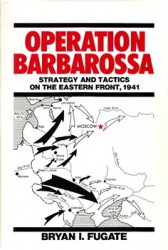Founded in 1882, the Indian Rights Association was the first major advocacy organization for Native Americans. As a lobbying power and shaper of public opinion, the Indian Rights Association raised consciousness about the plight of Native Americans as it worked to enact reforms and ameliorate conditions for Indians.
The Indian Rights Association was founded in large part by Herbert Welsh, an upper-middle-class Philadelphian. Welsh and his colleague Henry S. Pancoast traveled with an Episcopal mission to the Dakota Territory in the spring of 1882 and spent four weeks visiting Sioux agencies. Welsh returned and published his proposals for reform in a pamphlet called Four Weeks among Some of the Sioux Tribes. By the end of the year, he and Pancoast had established the Indian Rights Association to secure political and civil rights for Native Americans and to act as a watchdog group to ensure that their treaties with the U. S. government were enforced.
Association members were affluent, and Welsh tapped Philadelphia high society for support. Welsh spent the next year meeting with influential patrons in the East, doing speaking engagements and raising funds. By 1885 the Association had a home office in Philadelphia and a lobbyist in Washington, D. C. Welsh and the Indian Rights Association worked on behalf of the Sioux tribes, in particular, in the organization’s first years and lobbied for the Dawes Severalty Act of 1887, which distributed tribal lands to individual Indians, a measure designed to acculturate and “civilize” Indians. As the latter goal suggests, the Indian Rights Association was paternalistic in its approach, and Welsh initially looked to assimilate the tribes and replace their customs with Christianity, a system of laws and education, and a Protestant work ethic. Welsh worked to increase educational opportunities for Native Americans, which tended to break the fabric of Indian culture rather than encourage it. Ultimately, Welsh trusted the concept of federal oversight of tribes, and the Indian Rights Association worked within the federal Office of Indian Aeeairs (Indian Bureau) to guarantee fair dealings between the government and the tribes.
True to its name, the Indian Rights Association promoted Indian rights in the Sioux land dispute during the 1880s, the Apache War in the late 1880s, the Ghost Dance War in 1890, and the attempted removal of the Ute Indians from Colorado in the 1890s. Welsh relinquished direct control of the organization in 1904, which, despite its paternalism and its efforts to acculturate Indian Society, had ameliorated the treatment of Native Americans.
Further reading: William T. Hagan, The Indian Rights Association: The Herbert Welsh Years, 1882-1904 (Tucson: University of Arizona Press, 1985).
—Scott Sendrow
Indians See Native Americans.




 World History
World History









